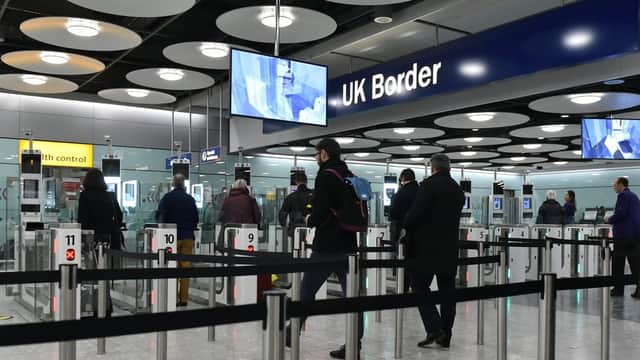UK residents could be banned from travelling to the EU after 1 January - what you need to know


UK residents may face a ban on non-essential travel to the EU after the transition period ends on December 21.
Why might a travel ban happen?
The travel rules associated with being a part of the EU will dissolve at the end of this year, meaning unrestricted travel to EU countries will no longer apply to UK residents.
Advertisement
Hide AdAdvertisement
Hide AdCurrent rules state that only non-EU countries with low coronavirus infection rates qualify for non-essential travel to countries within the EU. Only eight countries, including South Korea and New Zealand, are currently on the list.
Though talks between the UK and the EU are still ongoing, the EU commission have indicated there will be no exemption made for the UK.
This means that, come 1 January 2021, UK travellers may be disbarred from non-essential travel to EU countries.
It's also been reported that Norway (belonging to the Schengen area) has confirmed it will bar UK visitors from 1 January.
Will I still be able to go on holiday?
Advertisement
Hide AdAdvertisement
Hide AdIn recent weeks, airlines have reported a surge in bookings to EU countries for 2021 after the rollout of vaccines, but many of these trips could now be at risk.
Currently, non-essential travel to many EU countries is already restricted under UK rules, with these restrictions invalidating most insurance policies.
If talks between the UK and the EU advance further, however, this policy could change.
Alternatively, individual EU countries are able to override EU rules to create a travel corridor with the UK.
Advertisement
Hide AdAdvertisement
Hide AdIndeed, a spokesperson for the airline Easyjet told the BBC, "There is no EU blanket law which requires individual states to limit entry from those arriving from outside the EU and so just as they do today, we expect individual European countries to continue to apply their own rules."
A spokesman for ABTA, the travel industry trade body, commented to the BBC, "The EU has sought to adopt a common approach to travel restrictions, but this is only a recommendation and individual countries are able to implement their own measures, including options like travel corridors and testing."
With many places in the EU - such as the Canary Islands in Spain - dependent on UK tourism, some experts believe certain countries will make exemptions - though there is no obligation to do so.
What is the UK government saying?
A UK government spokesperson said, “We cannot comment on decisions that could be taken by other states on public health matters.
Advertisement
Hide AdAdvertisement
Hide Ad“We take a scientific, risk-based approach to health measures at the border, and it is of course in the interests of all countries to allow safe international travel as we emerge from the pandemic.
Foreign Secretary Dominic Raab said on the BBC Today programme that restrictions will be “kept under review” and would depend on what the EU and its member states decide.
What counts as ‘essential’ travel?
Under the EU rules, essential travel mainly encompasses work, including healthcare workers, seasonal farm workers and aid workers.
Urgent family matters, entry for study and transit reasons are permitted.
If you’re a European citizen living in the UK, you’ll still be permitted to travel to the bloc.